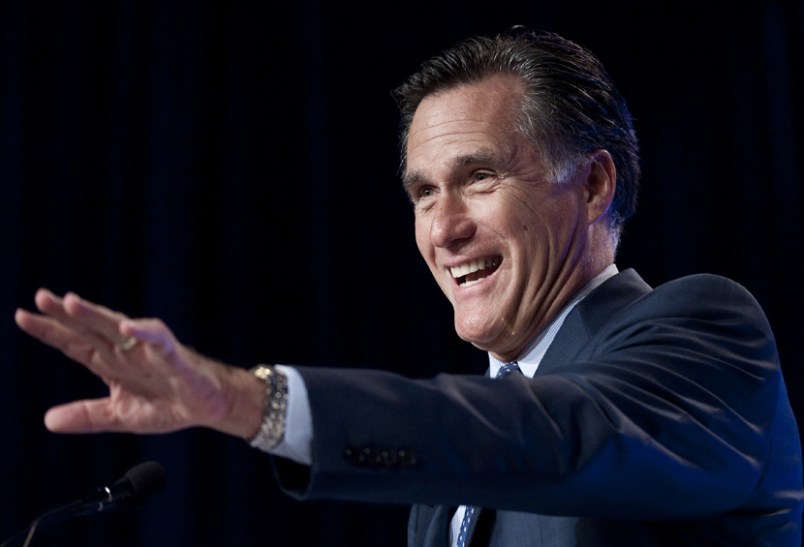While other potential 2012 GOP presidential candidates fall all over themselves to appeal to the tea party base that represents one of the most enthusiastic groups in the Republican Party, Mitt Romney’s taking a different approach.
Though the former Massachusetts governor is considered a leading contender in the race to take on President Obama next year, the Boston Globe reports that he’s done little to court what most observers expect will be a key component of the primary electorate: the tea party activists who so altered the GOP landscape in 2010.
From the Globe:
[Romney] has largely shunned Tea Party activists in key primary states, including the state he must win if he enters the race, New Hampshire. Thus far, Romney is on track to present himself as the establishment candidate — a responsible, mainstream Republican leader with the necessary financial resources and credentials to beat President Obama.
Though his associates tell the Globe that “Romney could begin reaching out to activist leaders later” and argue it’s “too early to speculate on the Tea Party movement’s influence on the Republican primary field,” it’s no secret that Romney is not likely to find his strongest support among the tricorn-hatted bunch in the tea party. For one thing, he was the chief executive signing a health insurance mandate into law before it was cool.
“I feel strongly — strongly — that I do not want Mitt Romney as our presidential nominee,” one New Hampshire tea partier tells the Globe. The Granite State Republican tells the paper that Romney is “fraudulent” and a political “chameleon.”
Romney may be trying to wait things out — to see if the schism between tea partiers and “establishment” Republicans holds through the presidential nomination cycle, when theoretically the focus on Obama could be a uniting force — but the nature of the GOP electorate could mean that he’ll be running uphill whether he reaches out to the tea party or not.
Just after the November elections last year, Republican pollster Bill McInturff told reporters that the changing makeup of Republican voters means that the classic “next guy in line” model the party has used to select its nominees in the past has been blown up by the rise of the tea party, which is wary of anything “establishment.” The tea party types in McInturff’s polling liked people like Newt Gingrich and Sarah Palin over Romney, while the diminished establishment-types liked Romney.
Romney appears to have taken results like that to heart, preferring not to engage the tea party yet and hoping that presidential primary voters will be made up of more than the angry tea party activists who comprised the bulk of the 2010 primary electorate.









